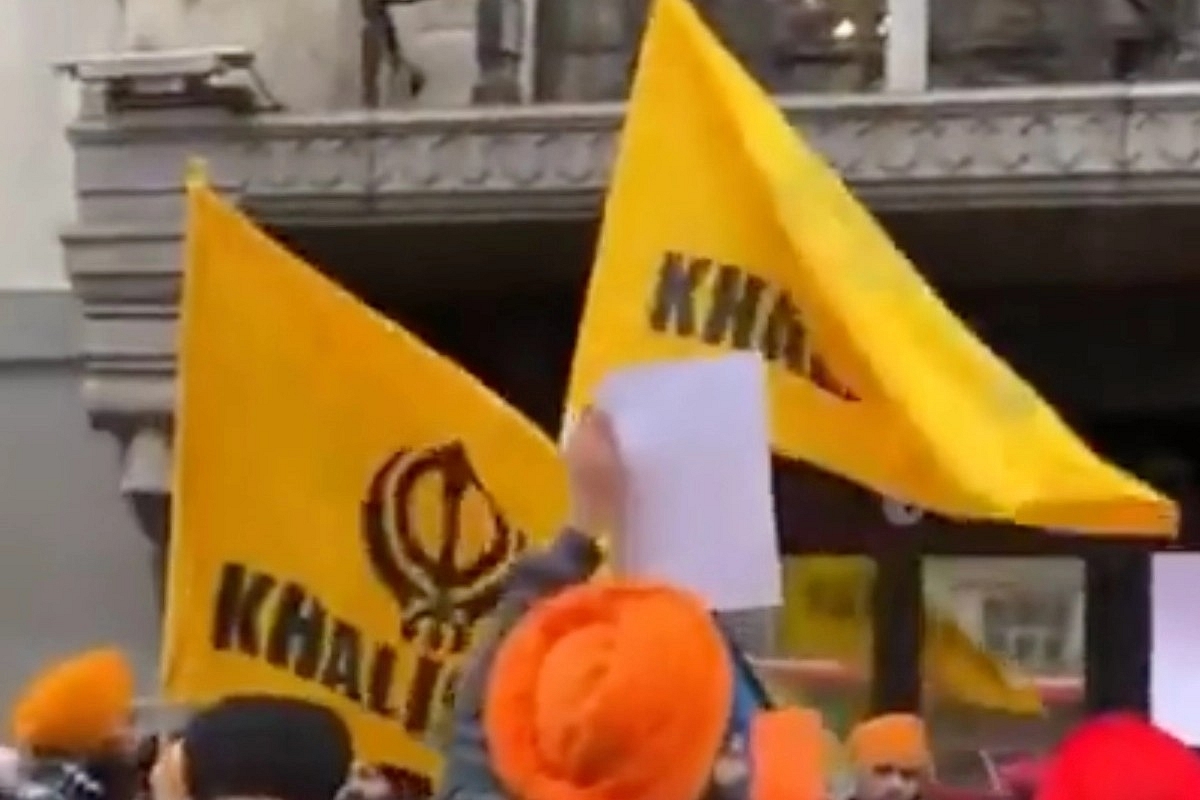News Brief
Khalistani Extremists Do Not Represent The Sikh Faith, Says A UK Government Report

Khalistani elements outside Indian High Commission in London.
An independent report commissioned by former UK prime minister Boris Johnson has expressed concern over the rising Khalistani extremism within the British Sikh community, the ANI reported on Thursday (27 April).
The Bloom Review, an independent report conducted by ‘Independent Faith Engagement’ advisor Colin Bloom, also said that Khalistani separatists’ ideology is not aligned with the basic tenets of the Sikh faith.
It says that the subversive, sectarian, and discriminatory activities of these groups do not reflect the true nature of Sikhism and the British Sikh community.
It rather emphasises that there exists a “small, extremely vocal and aggressive minority of British Sikhs who can be described as pro-Khalistani extremists”.
It warns that these groups aim to artificially inflate their influence through political lobbying under the guise of human rights activism, presenting a false appearance of legitimacy. It also notes that they might try to “subvert the British political order”, a strategy used historically by white supremacist groups and Islamist terrorists.
It says that the British Sikh respondents, some 21,000 of them, have cautioned the UK government over failing to distinguish between subversive extremists and mainstream Sikh communities and “turning a blind eye to religious extremism”.
Notably, the report cites the harassment faced by Lord Singh of Wimbledon, a prominent Sikh public figure, at the hands of individuals and organisations who wanted to prevent him from expressing views contrary to his on Sikh issues.
It names the Sikh Federation For UK (SFUK) for ill-treating Lord Singh and asks the All-Party Parliamentary Group for British Sikhs to be cautious and prevent the unwitting hosting of such individuals and groups.
The report comes at a time when the attack by Khalistani extremists on the Indian High Commission in London has strained ties between the two nations and prompted India to raise the issue at the highest political levels.
Reports have also said that the UK might have resisted pressure from Khalistani groups and remained silent when extremist Amritpal Singh’s wife Kirandeep Kaur was refused leave from India, which could have prompted his surrender last week.
The report further asks for encouraging acceptance and collaboration among religious communities and combating negative behaviours.
Support Swarajya's 50 Ground Reports Project & Sponsor A Story
Every general election Swarajya does a 50 ground reports project.
Aimed only at serious readers and those who appreciate the nuances of political undercurrents, the project provides a sense of India's electoral landscape. As you know, these reports are produced after considerable investment of travel, time and effort on the ground.
This time too we've kicked off the project in style and have covered over 30 constituencies already. If you're someone who appreciates such work and have enjoyed our coverage please consider sponsoring a ground report for just Rs 2999 to Rs 19,999 - it goes a long way in helping us produce more quality reportage.
You can also back this project by becoming a subscriber for as little as Rs 999 - so do click on this links and choose a plan that suits you and back us.
Click below to contribute.
Latest